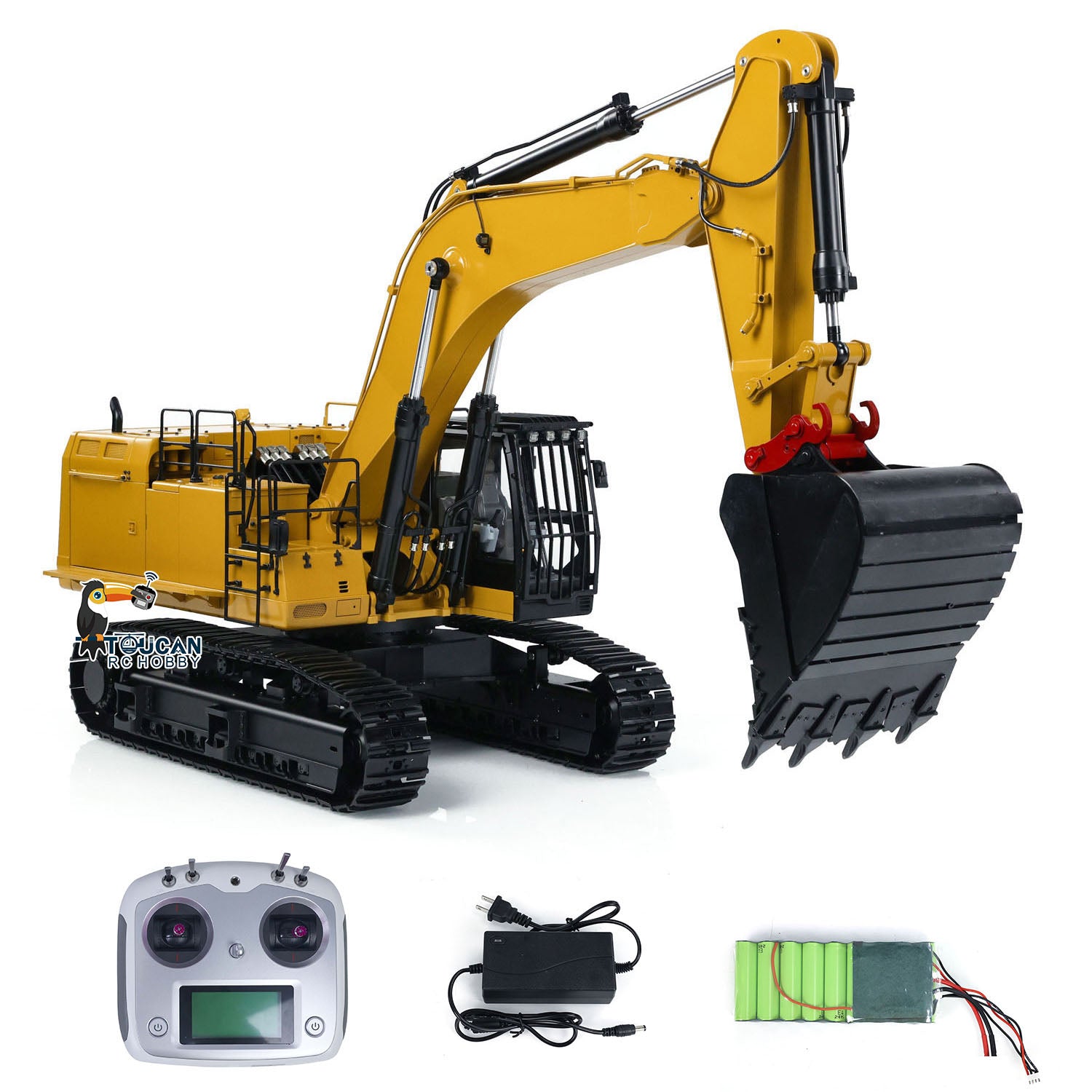Comprehending Just How Excavator Works and Its Influence On Effectiveness
Excavators play an essential function in construction and mining procedures, counting on a complicated interplay of mechanical and hydraulic systems. Their ability to execute a range of jobs hinges on both their design and the technology integrated within. Comprehending these elements can substantially influence functional effectiveness and productivity. As improvements continue to reshape the sector, one have to think about just how these modifications will certainly influence future techniques and performance.
The Basics of Excavator Mechanics

The Duty of Hydraulic Equipments in Excavators
At the heart of excavator procedure lies the hydraulic system, which plays an essential role in powering the equipment's functions and motions. This system makes use of pressurized hydraulic fluid to move energy, enabling various actions such as training, swinging, and digging. By using the principles of hydraulics, excavators can carry out tasks with remarkable precision and pressure, enhancing total functional efficiency.The hydraulic system contains key elements, consisting of shutoffs, cyndrical tubes, and pumps, which interact to regulate the circulation and instructions of the fluid. When the operator involves the controls, the hydraulic fluid is guided to certain cyndrical tubes, translating the driver's commands right into physical motion. This device permits responsive and smooth actions, which are important in construction and excavation atmospheres. double e volvo rc excavator. The effectiveness of the hydraulic system directly impacts the performance and adaptability of the excavator, making it a vital aspect in contemporary excavation processes
Key Elements of an Excavator
Comprehending the key elements of an excavator is essential for realizing how this powerful device runs. An excavator includes a number of considerable aspects, including the undercarriage, residence, pail, boom, and arm. The undercarriage offers stability and flexibility, frequently including tracks or wheels to browse various terrains. The house contains the engine and hydraulic systems, permitting the driver to regulate activity and power the equipment. The boom prolongs from the residence, making it possible for upright reach, while the arm links to the container, facilitating excavating and lifting operations.Additionally, the cab houses the driver, equipped with controls for precise maneuvering. Each of these components plays a vital duty in the excavator's general capability, adding to its efficiency and efficiency on building sites. Comprehending these components helps in preserving and enhancing excavator performance, making certain tasks are finished securely and efficiently.
Attachment Convenience and Its Advantages
Add-on flexibility is an essential element of excavators, enabling drivers to change in between various devices tailored for specific jobs. This adaptability not just boosts job performance but likewise adds to cost-effectiveness by reducing the demand for numerous makers. Recognizing the different kinds of add-ons readily available can greatly impact the general efficiency and functionality of an excavator on job sites.
Kinds of Accessories
While excavators are largely recognized for their excavating capacities, their true versatility exists in the large range of attachments available. These add-ons enhance the excavator's capability, allowing it to perform numerous jobs beyond excavation. Usual add-ons consist of containers (for digging and scooping), hydraulic thumbs (for comprehending products), and augers (for piercing openings) Grapples are made use of for managing and moving particles, while rippers can separate difficult surfaces. Various other specialized add-ons, such as plates and rakes, allow excavators to adjust to specific task requirements. This variety not only enhances the device's energy throughout different sectors, consisting of landscaping, construction, and demolition, yet also permits operators to customize their devices to satisfy certain job needs effectively.
Enhanced Task Efficiency
Taking full advantage of job performance is a key advantage of making use of numerous excavator attachments. Different accessories allow an excavator to perform numerous tasks without needing to change equipment, conserving beneficial time and labor. For circumstances, utilizing a hydraulic hammer can break concrete while a bucket accessory can dig deep into dirt, making it possible for a smooth workflow. This convenience lowers downtime related to equipment modifications and boosts efficiency on-site. In addition, specialized accessories enhance precision in jobs such as grading or landscaping, bring about greater quality results. The capability to adapt to different task requirements not only streamlines procedures however likewise reduces the need for extra machinery, guaranteeing that tasks are completed promptly and efficiently. In general, attachment versatility significantly adds to increased job effectiveness in excavation job.
Cost-Effectiveness and Adaptability
Cost-effectiveness is a considerable advantage of making use of functional excavator accessories. These add-ons enable a solitary excavator to perform several jobs, lowering the demand for additional equipment and labor - double e volvo rc excavator. By changing in between containers, hammers, and grapples, drivers can take on various tasks, from excavating to demolition, thereby maximizing equipment application. This flexibility not just lowers functional prices yet also lessens downtime related to altering tools. In addition, the ability to personalize excavators with specialized accessories improves productivity, as they can successfully deal with varied jobs according to project needs. To wrap up, the mix of cost-effectiveness and versatility in excavator add-ons adds to improved operational effectiveness and source allotment in building and construction and excavation tasks

Advanced Technology in Modern Excavators
Modern excavators are increasingly equipped with advanced technology that transforms excavation processes. Automation simplifies procedures, while boosted fuel effectiveness decreases operational prices. Furthermore, wise control read here systems enhance precision and safety, marking a considerable development in excavation devices.
Automation in Excavation Processes
As excavation innovation progresses, automation has become an important element in boosting effectiveness and accuracy on job websites. Modern excavators are geared up with innovative automated systems that facilitate jobs such as grading, excavating, and trenching with minimal driver intervention. These systems make use of sensing units, GPS, and machine understanding formulas to assure precise positioning and deepness control, greatly minimizing the margin for error. Furthermore, automation enables operators to concentrate on strategic decision-making as opposed to hand-operated controls, causing improved productivity overall. Such advancements not only simplify operations yet likewise improve security by lessening human error in complicated procedures. As a result, the assimilation of automation in excavation procedures represents a significant advancement in building modern technology, driving the market towards higher efficiency and performance.
Boosted Fuel Effectiveness
Advancements in innovation have actually additionally resulted in substantial improvements in fuel efficiency for contemporary excavators. Modern equipments are equipped with sophisticated engines that maximize power result while reducing gas consumption. These engines make use of cutting-edge combustion modern technologies, such as turbocharging and direct gas injection, to enhance performance and performance. In addition, lightweight materials in building lower overall weight, permitting less energy expense during procedure. The introduction of variable speed controls makes it possible for operators to change engine efficiency according to certain tasks, better minimizing fuel usage. Therefore, these enhancements not just reduced functional prices but also contribute to environmental sustainability by minimizing emissions. Generally, enhanced gas performance in excavators is a vital growth that reinforces productivity and economic stability in the building market.
Smart Control Solution
While drivers navigate increasingly complicated work websites, smart control systems in excavators have emerged as necessary devices company website for improving effectiveness and precision. These advanced technologies utilize formulas and sensors to keep track of different specifications such as lots weight, surface problems, and functional performance. By automatically adjusting hydraulic features, smart systems optimize device performance, resulting in enhanced performance and lowered wear on elements. Furthermore, drivers gain from user-friendly interfaces that offer real-time responses and diagnostics, enabling notified decision-making. This integration of modern technology not just simplifies operations however also lessens human error, adding to much safer work settings. As the construction sector continues to advance, smart control systems will play an important duty in shaping the future of excavator performance and performance.
Enhancing Operational Effectiveness With Excavators
Excavators play a vital role in boosting operational performance throughout various building and excavation projects. Their versatility permits numerous jobs, consisting of product, lifting, and digging handling, which streamlines workflows and decreases the demand for extra equipment. With powerful hydraulic systems, excavators can execute durable jobs with accuracy, substantially decreasing the time called for to total jobs. The combination of sophisticated innovation, such as general practitioner and automated controls, better enhances their procedure, enabling drivers to achieve better precision and lower material waste. Additionally, modern-day excavators are developed to take in much less fuel and lessen emissions, contributing to both cost savings and environmental sustainability. By utilizing excavators successfully, building and construction teams can improve performance, satisfy task due dates, and enhance general site monitoring. This multifunctionality and performance make excavators vital devices in the contemporary building landscape.
The Future of Excavators in Building And Construction and Mining Industries
As the building and mining sectors develop, the future of excavators is positioned for substantial transformation driven by technological innovation and transforming operational demands. Breakthroughs in automation and synthetic intelligence are reshaping excavator capacities, enabling improved precision and performance in operations. Independent excavators are arising, decreasing the need for human treatment and reducing the risk of accidents.Moreover, the combination of telematics and IoT technology allows real-time tracking of equipment performance and anticipating maintenance, enhancing uptime. Environmentally friendly styles, consisting of hybrid and electric models, are obtaining grip, aligning with sustainability goals within the industry.Additionally, making use of innovative materials and lighter styles enhances fuel effectiveness while keeping efficiency standards. As these trends progression, excavators will play a vital duty in satisfying the boosting needs for productivity and safety in construction and mining, inevitably changing operational landscapes.
Frequently Asked Questions
How Do Climate Problems Impact Excavator Efficiency?

Weather significantly influence excavator performance, as rainfall and mud can impede traction and security, while extreme temperature levels may impact hydraulic systems. Operators needs to adapt to these variables to ensure ideal performance and safety and security throughout procedures.
What Precaution Should Operators Adhere To While Utilizing Excavators?
Safety and security procedures for excavator operators consist of putting on suitable personal protective devices, carrying out pre-operation inspections, making sure appropriate communication with ground personnel, keeping a secure distance from above hazards, and sticking to recognized functional procedures to stop crashes.
Exactly How Often Should Excavators Be Kept for Ideal Efficiency?
Excavators should be preserved on a regular basis to ensure peak efficiency, commonly every 250 operating hours or as defined by the manufacturer. Routine checks improve integrity, avoid unanticipated break downs, and extend the life-span of the devices.
What Is the Typical Lifespan of an Excavator?
The ordinary life expectancy of an excavator usually varies from 10,000 to 15,000 hours of operation. Elements influencing long life consist of upkeep methods, operating problems, and the top quality of the machine itself, affecting total performance and performance.

Can Excavators Operate Irregular Terrain Properly?
Excavators can operate efficiently on unequal terrain as a result of their expressed styles and adjustable tracks. These features enable them to maintain security and grip, enabling reliable procedure in tough environments typically come across in building and construction and landscaping projects. Each of these components plays a vital role in the excavator's total functionality, Recommended Reading contributing to its performance and performance on building and construction websites. Making the most of task efficiency is a key advantage of using numerous excavator attachments. While drivers navigate progressively complicated work sites, wise control systems in excavators have actually arised as important devices for improving effectiveness and precision. Excavators play a vital duty in enhancing functional efficiency throughout numerous building and construction and excavation projects. Developments in automation and synthetic intelligence are improving excavator capacities, allowing for boosted precision and efficiency in operations.